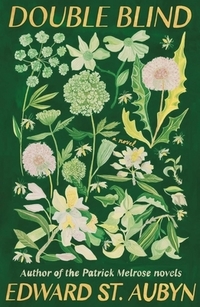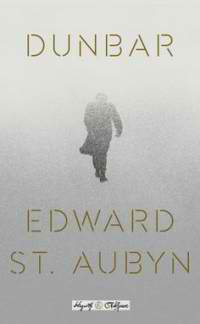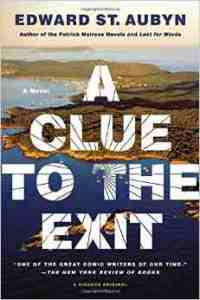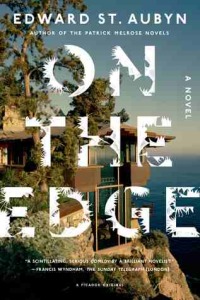Parallel Lines by Edward St. Aubyn
 Monday, June 9, 2025 at 6:32AM
Monday, June 9, 2025 at 6:32AM 
Published by Knopf on June 3, 2025
Parallel Lines is a sequel to Double Blind, a novel I recommended with reservations. I have so many more reservations about Parallel Lines that I can’t recommend it. The plot in Double Blind was difficult to find. It is entirely absent in Parallel Lines. If you haven’t read Double Blind, I can’t think of any reason to read Parallel Lines.
Olivia was “lured” from a research fellowship at Oxford to join a tech company that makes Happy Helmets, a product that stimulates parts of the brain for dubious purposes, before losing her job when the company was sold. Now she’s working on a radio documentary series about human extinction, exploring in six episodes the most likely means of humanity’s end (asteroid strike, overpopulation, nuclear war, artificial intelligence, pandemic, and global warming). She started with asteroids because they are “the only extinction candidate that could not be attributed to human folly or the unintended consequences of scientific genius.”
The documentary series might have provided the story with interesting subject matter if it had been the novel’s focus, but the plot gives it scant attention. Instead, Olivia devotes her thoughts to family drama surrounding her son Noah, her husband Francis and her brother Sebastian. Olivia continues to fret about the apparent designs that Hope Schwartz (now Francis’ employer) seems to have on Francis. Like all children of fiction, Noah is obsessed by dinosaurs and occasionally makes pronouncements that are profound in their innocence.
Sebastian is still being treated by psychoanalyst Martin Carr, who happens to be Olivia’s adoptive father. Sebastian is Olivia’s twin, although their mother hung onto Sebastian after giving up Olivia for adoption. A few months later, Sebastian was in institutional care. Without the knowledge of the Carrs, who would have adopted Sebastian along with Olivia if they had known his mother was not keeping him, Sebastian was adopted by a different family. That dynamic might have been interesting, but any interest it generated in the first novel failed to sustain in the sequel. Martin does seem to be helping Sebastian despite his conflict of interest, making the potential benefit of psychoanalysis — and the thought that world leaders should be required to undergo it before they begin their jobs — the story’s most interesting theme.
My favorite character from Double Blind, Father Guido, is now at an Italian monastery, where he is joined on a retreat by the wealthy Hunter, who hopes to regain his compassion after watching it “turn into resentment and sometimes into hatred, as well as speculation about the life I might have had rather than the one I do.” I would have enjoyed seeing Father Guido in a larger role.
Sebastian begins the novel in a Suicide Observation Room. “With a name like that, you would have thought it would be stuffed with pistols and daggers and grenades and cyanide capsules so that people who liked observing suicide had something to look forward to.” Amusing observations are the best part of the novel, but they do not suffice to compensate for unthethered storylines that never cohere into a meaningful plot.
Parallel Lines is filled with clever thoughts, so many that the reader might feel the consequences of a cleverness overdose. Olivia imagines that giant cockroaches, inheriting the Earth after a human extinction event, will play with toy humans the way that human children play with toy dinosaurs. After learning that he has a twin, Sebastian frets about the harm he experienced in an overpopulated womb. “Perhaps now he’d met his twin his halfway house and her halfway house could join forces to make a whole house.” This gives rise to a silly thought as Sebastian tries to recall history: “It must have been Romulus who killed Remus otherwise the city would be called Reme, not Rome.”
Characters have the kinds of impossibly witty conversations found only in novels and movies. "Purity is a lousy ideal," says Hunter, "more likely to produce a bulimic or a Nazi than a saint." The wit accumulates until the conversations become showcases for people whose goal is to one-up each other as they show off their cleverness and esoteric knowledge (did you know Gerald Manley Hopkins invented the word “inscape” to describe “something like the individual form of something”?). Demonstrating that bright, self-impressed people can be insufferable might be Edward St. Aubyn’s point, or perhaps he enjoys their company, but it is difficult to sustain interest in insufferable characters. I failed in that endeavor and therefore cannot recommend the novel.
NOT RECOMMENDED



